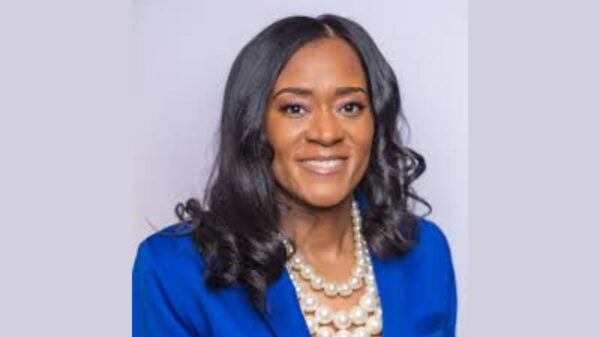By Aria Brent
From – https://afro.com/
Reprinted – by Texas Metro News

The consumption of alcohol is something you can find throughout many parts of Black history and culture. Whether it be Snoop Dogg’s 1994 hit “Gin and Juice” or the infamous Billy Dee Williams ads, used to promote Colt 45 Malt Liquor, alcohol has been woven deep into Black culture which has resulted in a normalization of its consumption.
From Juneteenth cookouts to graduation parties, weddings and even baby showers– some members of the Black community association the idea of relaxation and enjoyment with liquor.
“In my family alcohol use was very prevalent and I myself associated alcohol with fun. In Black communities, we associate fun with alcohol. My family was no different–everybody drank,” stated Donivan Stone, a recovery counselor at First Step Recovery Center in Columbus, Ohio. “Later on in my life drinking really became like a marriage that I felt was made just for me.”
A series of studies and research throughout the last 30 years has shown that Black communities along with other minority communities have a proportionately higher rate of alcohol advertisements. In 1998 it was reported by the National Institute of Health that Black and Latino neighborhoods had more advertisements for alcohol and tobacco than White and Asian neighborhoods. It was found that 23 percent of the billboards in Black neighborhoods were advertising alcohol, in comparison to the 13 percent of alcohol related billboards in White neighborhoods.
Despite social norms, cultural significance and an increased amount of advertising in predominantly Black areas, Black people are less likely to consume and abuse alcohol in comparison to their White counterparts.
In November of 2023 it was reported by AlcoholRehabGuide.org that “African-Americans are reported to drink less than their Caucasian counterparts. Historically, African-Americans have consumed lower amounts of alcohol. Although alcohol consumption is lower compared to Caucasian-Americans, African-Americans have been victims of alcohol-related illnesses.”
“We have a lower number for use than our Caucasian counterparts, but we have more negative consequences from the use of alcohol. We suffer more mental, physical and health problems because of the alcohol use in the Black community,” said Carol Stegall, a senior counselor at the Afrocenticentric Persona Development Shop in Columbus, Ohio. “Alcohol has a dramatic impact in the Black community. Whether it be health,socioeconomically or mental health wise– we are impacted at a greater rate.”
Stegall has been working in substance abuse for over 20 years and throughout her career she’s been able to focus specifically on how the Black community is affected by it. She went on to explain that although Black people are less likely to drink, the effects of drinking are a lot more severe on Black bodies.
Stegall said that Black people deal with an increased predisposition to alcohol, which makes it a lot more addictive for us. Stone furthered Stegall’s point by noting how predisposition leads to addiction
“When you have a higher genetic predisposition to alcohol, addiction is bound to happen; you just don’t know when. Sometimes you can drink 100 times and that genetic predisposition never kicks in–and then that 10th time it kicks in and the addiction comes alive,” Stone said.
He further explained that addiction isn’t based on the amount of substance consumption, but the frequency of it. The abuse expert shared the difference between someone who is dealing with an addiction as opposed to a substance abuse disorder, noting that someone who has two drinks everyday is an addict. On the other hand, someone who drinks a lot once a week is dealing with a substance abuse disorder.
Stone started drinking at an early age, having first tried alcohol at a family gathering. Throughout the years he says he went on to struggle financially, face imprisonment and deal with severe grief before finally reaching sobriety in 2010.
“The first time I drank I was about 12 or 13 and it was at my grandmother’s house during a spades party. I had a sip of beer and it was gross, I told myself I’d never drink it again. The next time I drank anything it was with my friends and I got sick and swore I’d never drink again,” Stone recalled. “By then, I think the addiction had kicked in though and I grew kind of fond of alcohol. I thought it was something I could control not knowing it was already controlling me.”
Although Stone didn’t recognize the severity of his addiction at the time, he later would begin to as he saw affect it those around him. Admitting that he was rather smooth with hiding his addiction, he thought those around him were oblivious to the ever-growing issue. However, he, like many other people who deal with substance abuse issues, was clearly changing for worse.
Like Stone, Cherron Hudson, a recovery counselor at First Step Recovery Center in Columbus, says she began drinking at an early age too.
“I started drinking at the age of 12, but my dad was in denial. My aunt kind of knew– but it wasn’t until my freshman year of high school when my dad found out,” stated Hudson. “I had drank some M.D. 2020 at the bus stop with my friends one morning before school and I went to first period. I was in that class the entire day because I passed out. I got suspended for intoxication and that’s when my dad found out.”
Hudson shared that following her suspension from school she was sent to a youth recovery program by her father. However, that treatment ended up being her first of many attempts at sobriety. Throughout the years she would lie and manipulate her friends and family to keep their concerns about her alcoholism at bay but her behavior became a major indicator that her addiction was progressing.
Much like Stone, Hudson’s addiction was only being hidden from herself. She was a functioning addict who was able to provide for her family so she never considered herself an alcoholic. It wasn’t until she began to neglect her children and become homeless that she even remotely considered herself to have a problem.
“I didn’t think I had a problem. I was making good money and I had nice things for myself and my kids. In 2006 I got a divorce and that set everything off,” Hudson said.. “I started drinking really heavily and I stopped taking care of my kids. I was leaving them with my parents, meanwhile I was homeless and couch-surfing every night. I was losing things, but I wasn’t realizing that I was losing things.”
In August of 2013, Hudson got into a car crash that served as her wake up call to what was truly going on in her life. In the past 11 years she’s maintained her sobriety while earning a plethora of certifications, and experience that have allowed her to help others overcome their addictions.
All three experts explained that addiction can be overcome and the first step is honesty. Both Stone and Hudson shared how important it is to be honest with yourself about the substance abuse issues you may be dealing with. However, Stegall noted that being honest about the behaviors of family members is just as important so you know what genetic predispositions you may be facing.
“We have to be honest about the issues going on in our families. If we’re not honest about something being an issue then it never gets treated like an issue and that leads to normalization,” Stegall exclaimed. “Hiding the truth doesn’t do any good, especially because knowing what you’re genetically predisposed to is a huge part of avoiding addiction.”







You must be logged in to post a comment Login